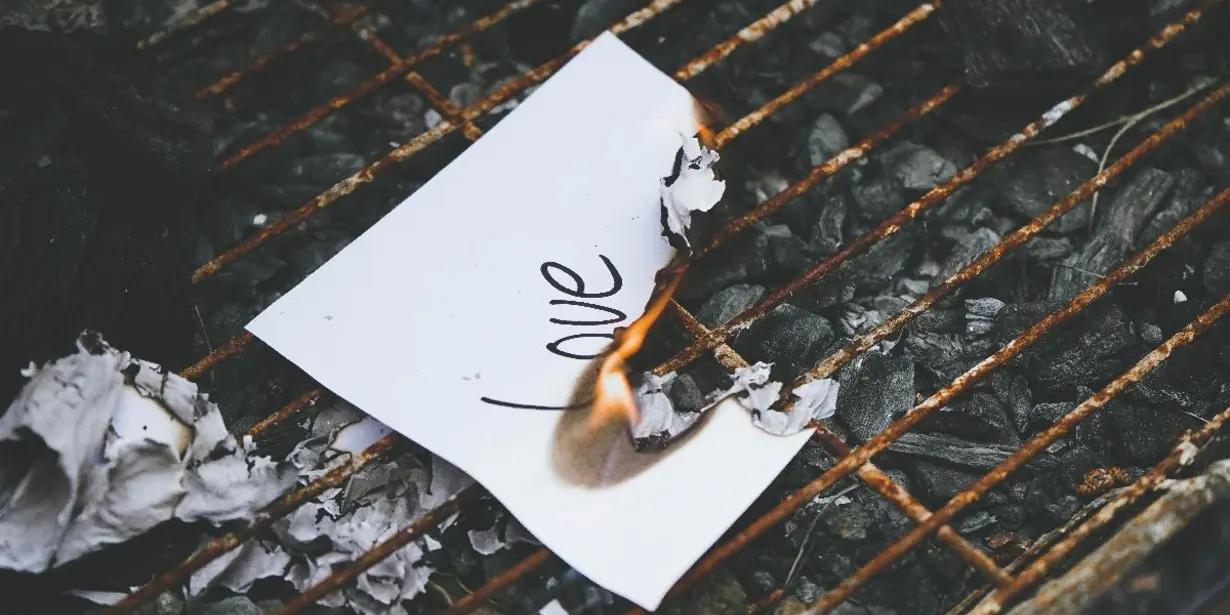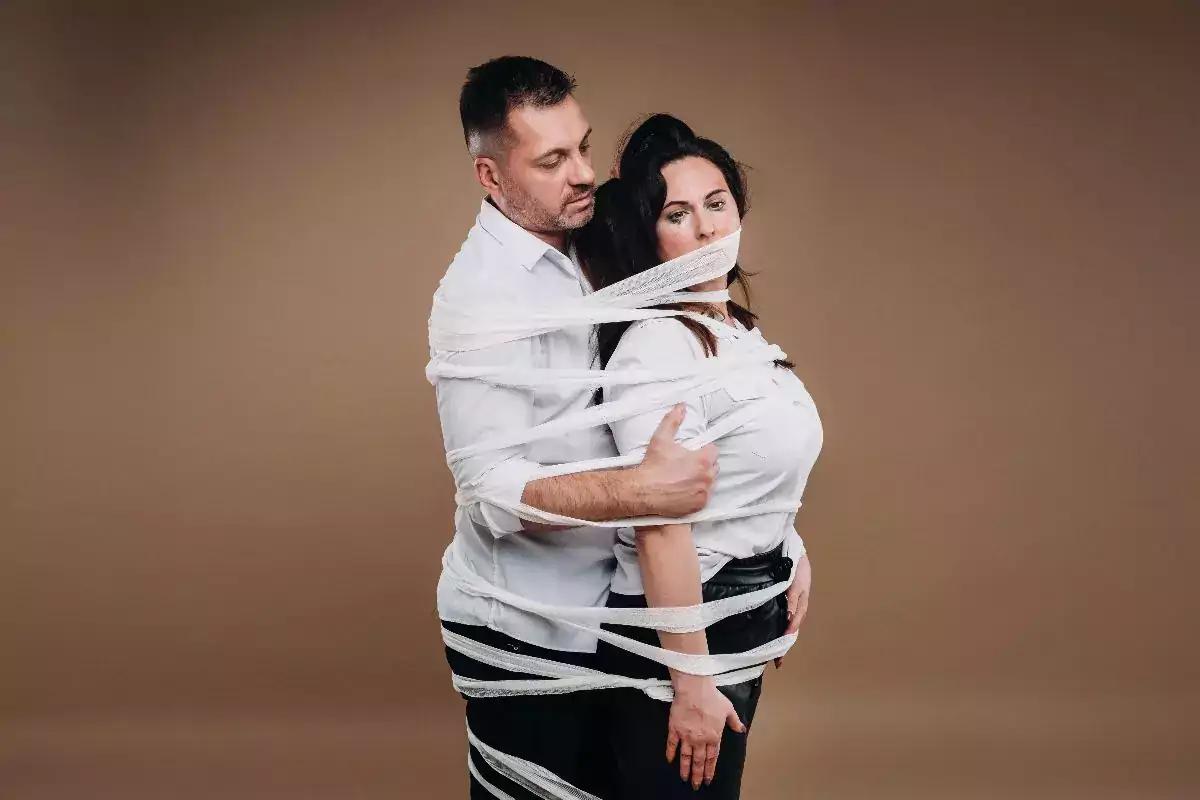
In this world in which almost all of us look for love, a stable partner or a company that makes us feel better and with which we can share our achievements, sometimes we stumble upon relationships that, far from be a fairy tale, they become torment. Have you wondered if you are in one of these relationships?
Today we want to talk to you about addiction to this type of toxic relationships, but for that we will first talk about what these relationships are, understand their effects and, most importantly, give you the tools to free yourself and build relationships healthy and full of light.
Tired of feeling exhausted, insecure and lackluster in your relationship? It's time to open your eyes! Perhaps you are trapped in a cycle of toxic relationships, traps disguised as love that consume your energy and happiness. Don't settle for less than what you deserve!
But first of all we need to know...
What is a toxic relationship?
Imagine a connection with another person who, instead of nurturing and supporting you, causes emotional, psychological, and even physical harm. That is the harsh reality of a toxic relationship.
These types of relationships are characterized by:
- Lack of respect: Manipulation, emotional blackmail, insults or even violence. A hostile environment where your dignity is violated.
- Emotional instability: Pathological jealousy, constant arguments, emotional ups and downs that make you feel on a roller coaster of negative emotions.
- Excessive control: Obsessive need to know where you are and with whom, checking your phone, etc. A suffocation of your individual freedom.
- Emotional dependence: Feeling empty without your partner, with a paralyzing fear of being alone. A relationship that robs you of your independence and self-esteem.
- Low self-esteem: Feeling inferior, guilty or not good enough for your partner. A relationship that undermines your personal value.
In short, they are relationships that make us constantly feel bad about ourselves and that negatively affect our emotional and mental well-being.
How to identify that you are in a toxic relationship?
It is crucial to recognize the signs of a toxic relationship in order to take control of your life. Some signs that can alert you are:
- Trapped in the web of fear: An irrational terror of losing your loved one consumes you, turning them into the center of your universe. You become obsessed with his presence, sacrificing your own identity for the sake of keeping him close.
- An endless dance of demands: The relationship becomes a battlefield where constant demands replace genuine affection. Each seeks to obtain from the other what he needs, regardless of the needs of the other.
- The false illusion of completeness: You believe that your partner is the other half of your soul, the only one who can fill you. However, this dependency makes you vulnerable and plunges you into despair if he distances himself.
- Maturity disguised as disinterest: Emotional maturity, that ability to love without unhealthy attachments, is interpreted as disinterest and indifference. True freedom and mutual respect are confused with coldness and apathy.
- Submission and total surrender: You surrender to your partner without questioning anything, renouncing your own will in a vain attempt to keep them by your side. Submission and blind obedience become the currency of love.
- Excessive passion without satisfaction: Sexuality, instead of being an act of connection and shared pleasure, becomes an obsessive and uncontrolled need. The quality of the encounter takes a backseat to the intensity of the passion.
- Jealousy, possession and violence: The lack of equality and freedom in the relationship breeds unhealthy jealousy, possessiveness and a desire for absolute control over the other. This breeding ground can lead to mutual deterioration and, in extreme cases, physical or emotional violence.
If you identify with several of these signs, it is important that you take some time to reflect on your relationship and seek help if you need it.

How do I know if I am addicted to a toxic relationship?
Addiction to a toxic relationship can be difficult to recognize, as it hides under the mask of love. But as in all addictions, there are mechanisms in our brain that guide us towards these types of relationships:
- The brain's reward system: a complex machinery that regulates the sensation of pleasure. When we experience something pleasant, this system releases dopamine, a neurotransmitter that makes us feel good.
- Toxic relationships: a scenario where the reward system becomes a double-edged sword. At the beginning, the relationship can generate moments of intense pleasure, activating the release of dopamine.
- The trap of addiction: Over time, the relationship becomes turbulent, with moments of pain and disappointment. However, the memory of past pleasurable experiences, even if they are few, keeps the hope alive that the relationship will be good again.
- The cycle of addiction: a cyclical pattern of behavior is established:
- Idealization phase: the person sees his or her partner as perfect and the relationship as ideal.
That is, when we receive external approval and validation, our reward circuits in the brain are activated, releasing dopamine and serotonin, chemicals linked to pleasure and happiness.
However, when the reward is inconsistent and unpredictable, as is the case in toxic relationships, our brains focus on chasing that emotional high.
After experiencing that emotional rise, comes the fall, and sometimes, emotional withdrawal syndrome. The circuits activated in the brain are practically the same, which explains why it is so difficult to break the cycle of a toxic relationship.
It is essential to differentiate between harmless flirting and a toxic relationship. At the beginning of a relationship, it is normal for there to be moments of intense emotion and periods of calm. These ups and downs are part of foreplay and the biology of falling in love. However, there are warning signs that indicate that the relationship is taking a toxic turn.
Some signs that may indicate that you are in this situation are:
- You cling to the hope that your partner will change: Despite trials and pain, you believe that your partner can change and that the relationship can improve.
- You feel guilty for thinking about ending the relationship: You believe that you are responsible for your partner's unhappiness and you feel guilty for thinking about leaving them.
- You reconcile with your partner again and again: Despite the problems and broken promises, you fall back into the relationship again and again.
- You feel a huge emptiness when you are not with your partner: You feel insecure, dependent and you don't know how to be alone.
If you identify with these signs, it is important that you recognize that you are in a relationship that is harmful to you and that you seek professional help to break the cycle of addiction.
What can I do to get away from toxic relationships?
Getting out of a toxic relationship can be a difficult process, but with the right support and determination, it is possible. Here are some steps you can follow:
- Admit that you are in a toxic relationship: The first step is to recognize the reality of your situation. Accept that the relationship is hurting you and that you need to take steps to change it.
- Strengthen your self-esteem: Remember that you deserve love and respect.
- Seek support: Talk to friends, family, or a mental health professional. The support of people who love and understand you can be invaluable in this process.
- Set clear limits: Define what you are willing to tolerate and what you are not in a relationship. Communicate these boundaries to your partner clearly and firmly.
- End the relationship: If the situation does not improve after you have tried everything else, it is time to take control of your life and end the relationship.
Remember that you are not alone. There are many people who have gone through the same thing as you and have managed to get ahead. With effort and determination, you too can free yourself from a toxic relationship and build healthy and light-filled relationships.
Other tips we can give you to get away from a toxic relationship and overcome it are:
- Take care of your physical and mental health: It is important that you take care of yourself both physically and mentally during this process. Get enough sleep, eat healthy, exercise, and find activities that make you feel good.
- Avoid contact with your ex-partner: It may be difficult at first, but it is important to avoid contact with your ex-partner in order to move forward.
- Join a support group: There are many support groups available for people who have been in toxic relationships. These groups can help you feel less alone and learn from other people's experiences.
- Don't be afraid to ask for professional help: A mental health professional can help you understand the causes of your addiction to toxic relationships and develop strategies to overcome them.









comments